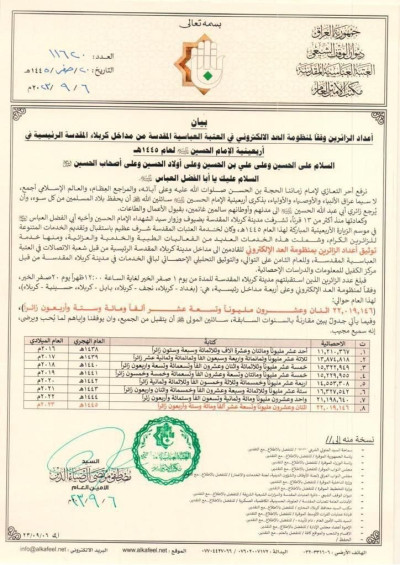By: Jaffer al-Bazee
Ali Ibn Abi Taleb (pbuh) was the cousin of the prophet of Islam, Muhammad (blessings of Allah upon him). The statements narrated from him as the voice of immortal humanity indicates he was not just an ordinary person, but rather a reformer. This real lover of God found what he was seeking for all the believers' hearts. Many hearts are known to be influenced by this great person. Human beings have witnessed how he reflects the justice of Allah at all times and places. Therefore, he does not belong to a specific place or time. He had always said that the human has two parts: he is either your brother in religion, or he is like you in creation. This attitude raises a watchword in a united nation. Many writers and scholars find in this person all the principles of humanity. They bear witness not only to his personality but also to his thoughtful speeches and his book (Nahj Albalagha) that all critics have referred to. Therefore, they have been writing about various speeches and poems of this immortal person.
Imam Ali in the eyes of the world
"The zeal and virtue of Ali were never outstripped by any recent proselyte. He united the qualifications of a poet, a soldier, and a saint; his wisdom still breathes in a collection of moral and religious sayings; and every antagonist, in the combats of the tongue or of the sword, was subdued by his eloquence and valour. " [The Decline and Fall of the Roman Empire, London, 1911, volume 5, pp. 381-2]
- Edward Gibbon, British Historian (1737-1794)
“Endowed with a clear intellect, warm in affection, and confiding in friendship, he was from the boyhood devoted heart and soul to the Prophet. Simple, quiet, and unambitious, when in after days he obtained the rule of half of the Moslem world, it was rather thrust upon him than sought.” [The Life of Mahomet, London, 1877, p. 250]
- Sir William Muir, Scottish Scholar (1819 - 1905)
"In face of the fake Umayyad claim to legitimate sovereignty in Islam as God's Vicegerents on earth, and in view of Umayyad treachery, arbitrary and divisive government, and vindictive retribution, they came to appreciate his honesty, his unbending devotion to the reign of Islam, his deep personal loyalties, his equal treatment of all his supporters, and his generosity in forgiving his defeated enemies." [The succession to Muhammad: a study of the early caliphate, Cambridge, 1997, pp. 309-310]
- Wilferd Madelung, German scholar (1930-)













اترك تعليق